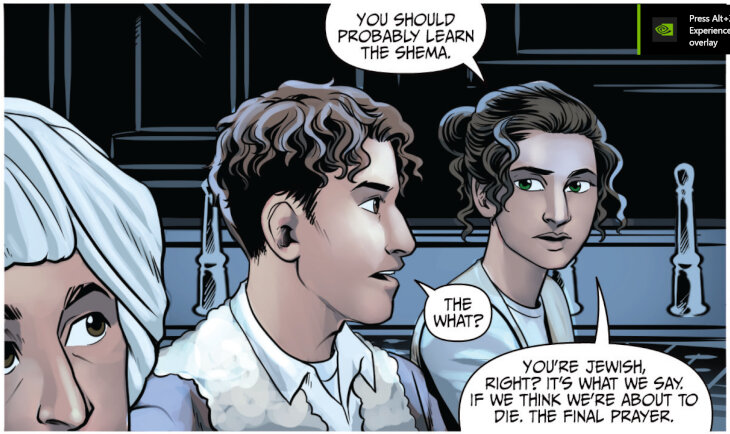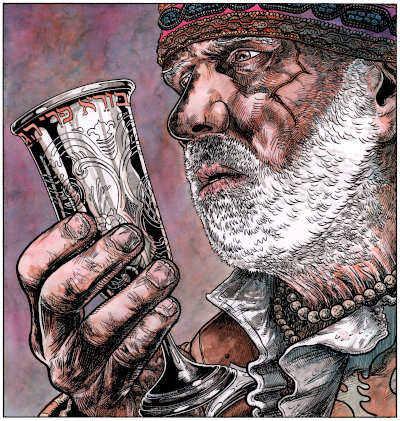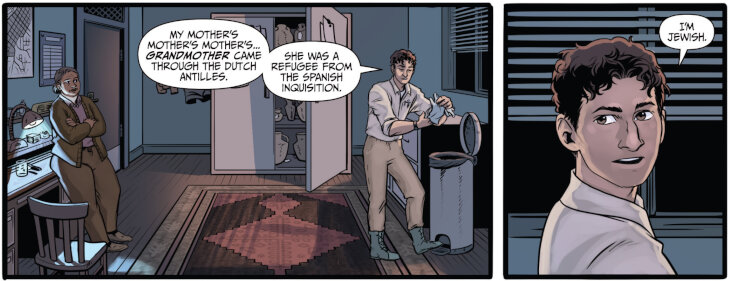 An Open Letter to University Presidents
An Open Letter to University Presidents


5 min read
We’re in the midst of an unprecedented wave of popular Jewish fiction, and I’m blessed to be part of it.
A decade ago, I wrote a screenplay called “Wayfarers”, a Jewish post-apocalyptic action-adventure inspired by the Biblical Exodus. I described it to my Hollywood peers as “Moses meets Mad Max.” The project caught the attention of a major production company.
We were in discussion to film in Morocco when the European executives delivered their one note on the screenplay: Would I rewrite it without any Judaism? Maybe I could invent a religion instead? They believed that an overtly Jewish genre film wouldn’t succeed.
A few years earlier, I believed the same thing.
I was an anxious young filmmaker in the early 2000s, pondering how to break into an impenetrable industry, when a wise friend offered unconventional advice: I should tap into my own heritage and tell Jewish stories in my films.

I recoiled at the idea. At the time, Jewish cinema was dominated by stories about secular Ashkenazi Jews, either facing persecution — usually the Holocaust — or struggling to assimilate into American society. These were mostly ponderous, low-budget European films, with an occasional Oscar-bait title from a Hollywood studio.
While these narratives were (and still are) important, they rarely found a broad audience and failed to inspire me as a filmmaker. I was drawn to Spielberg-style spectacle films from the '80s and '90s. These were the types of films I aspired to create. I wanted to reach the world. Jewish films, I thought, wouldn’t reach anyone.
My perspective began to shift when I participated in "The Jewish Film Challenge," a short-lived competition that gave filmmakers one week to create a short film incorporating three specific (and Jewish) prompts. I created a short film called "Widow's Meal" that revolved around an elderly woman grieving the loss of her husband. The film deviated from the common “Jewish movie” tropes of antisemitism, oppression, and assimilation. To my surprise, my film won the contest, prompting me to consider the potential of telling a different type of Jewish story.
 Arnon Z. Shorr
Arnon Z. Shorr
That’s when I began to explore infusing Jewishness into popular genres. Reflecting on some of my favorite films, I realized that there were hidden Jewish elements within their stories. Indiana Jones – particularly the first Jones film – is a sort of American Jewish fantasy, where the academic intellectual gets to fight Nazis in order to preserve something ancient and mystical. And Jurassic Park is a thinly-disguised Golem story.
But why the disguise? Why couldn’t these stories be overtly Jewish?
That’s when I wrote “Wayfarers”. I wanted to take the story we tell every Passover and reinvent it for Hollywood. And I wanted to make it explicitly Jewish. So when I was asked to cut out the Judaism, I held firm and stood my ground. I said no!
And the project quickly fell apart.
In the face of this defeat, I felt more determined than ever to prove that Jewish genre stories could reach a broad audience.
 Kiddush on a pirate ship
Kiddush on a pirate ship
A few years later, I did, with "The Pirate Captain Toledano,” a 10-minute swashbuckler about Jewish pirates. Instead of disguising the story’s Jewishness, the award-winning short film embraces it, climaxing with a traditional Friday night Kiddush in the bowels of a pirate ship. That overt Jewishness resonated with audiences at 50 film festivals around the world, including in places without a Jewish community. Its success validated the notion that Jewish genre films can transcend cultural barriers and touch a global audience.
The triumph of "The Pirate Captain Toledano" opened unexpected doors. It led to a book deal with Kar-Ben Publishing, allowing me to expand the short film's story into a middle-grade graphic novel, "José and the Pirate Captain Toledano." The novel was also a hit, selling over 10,000 copies in its first year. Its success caught the attention of Source Point Press, an indie comics publisher, who invited me to help establish a new imprint dedicated to Jewish comics. I now serve as the editor-in-chief of Maggid Comics, where I get to write popular Jewish genre comics, like “Ben Mortara and the Thieves of the Golden Table,” an Indiana Jones-like story that doesn’t hide its Jewishness. And I get to shepherd and support other Jewish tales for a broad and hungry audience.
My friend was right – with Jewish stories, I do get to touch the world.
Lots has changed since my wise friend offered his prophetic career advice. I learned to embrace my Jewish identity in new, creative ways. And the world changed, too. When I started out, there was no “Maisel” or “Shtisel” on TV. I don’t think any of us could have dreamed of the beautiful Jewish diversity depicted in a reality series like “Jewish Matchmaker.”

The world may finally be ready to embrace authentic Jewish entertainment. We’re in the midst of an unprecedented wave of popular Jewish fiction, and I’m blessed to be part of it.
Arnon Z. Shorr is a filmmaker, screenwriter and author. Though “Wayfarers” is not yet a movie, Arnon is currently releasing it as a serialized novel on Amazon’s new serialization platform, Kindle Vella. You can read the first chapter here. For more, visit www.arnonshorr.com

Keep up the good work Arnon!
I have not read it, but were there Jewish pirates and privateers?